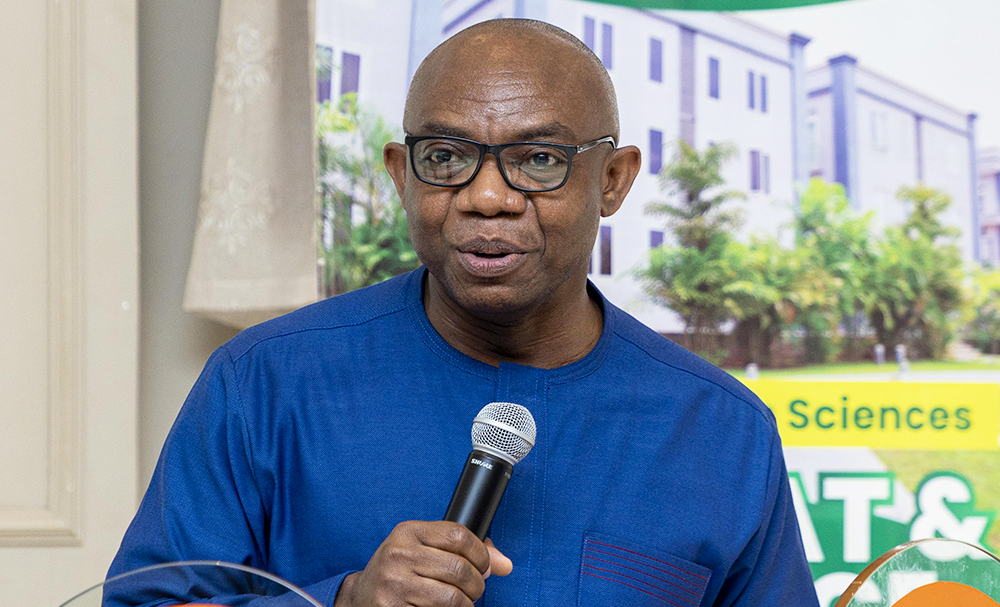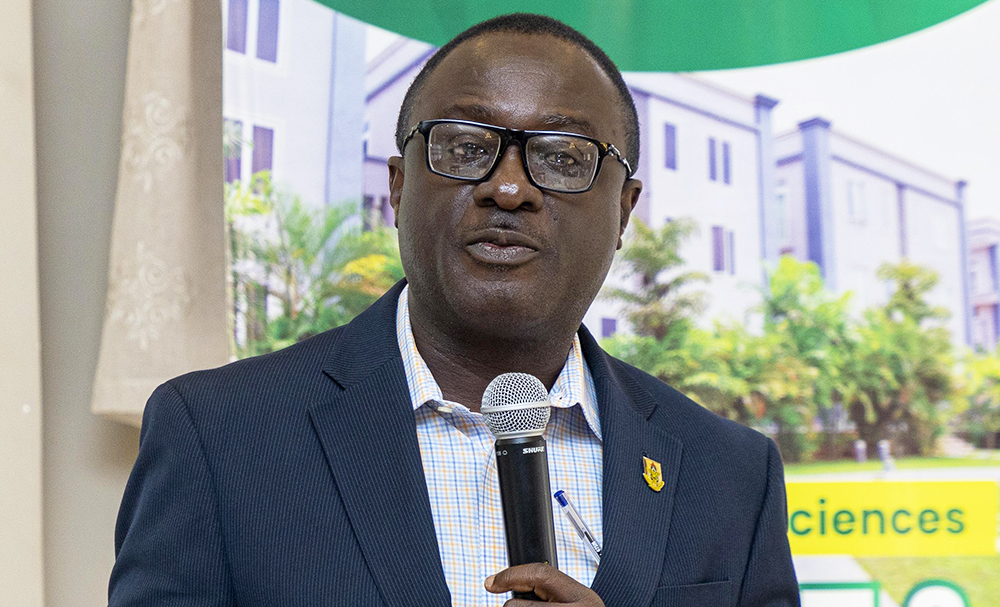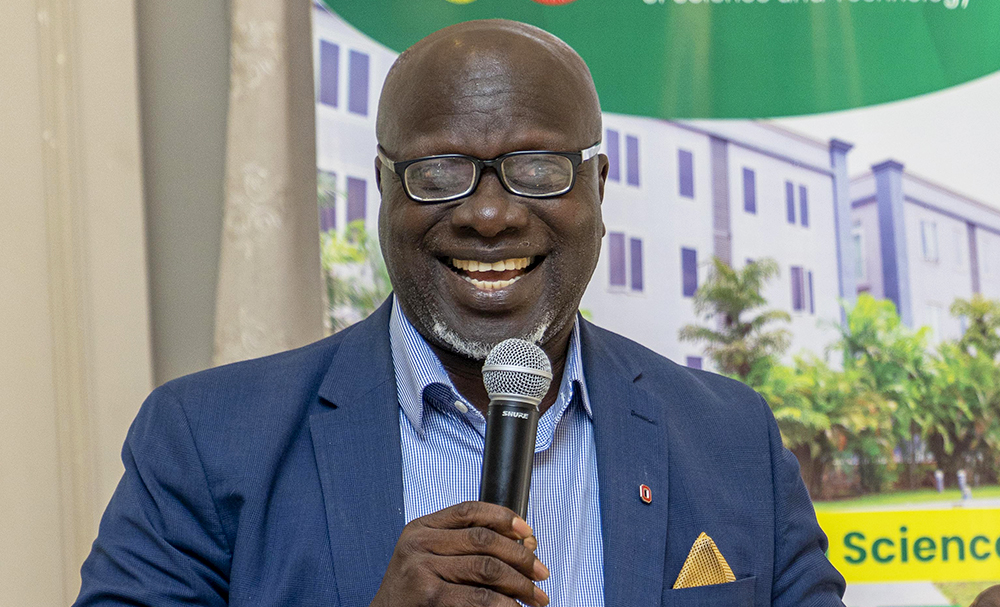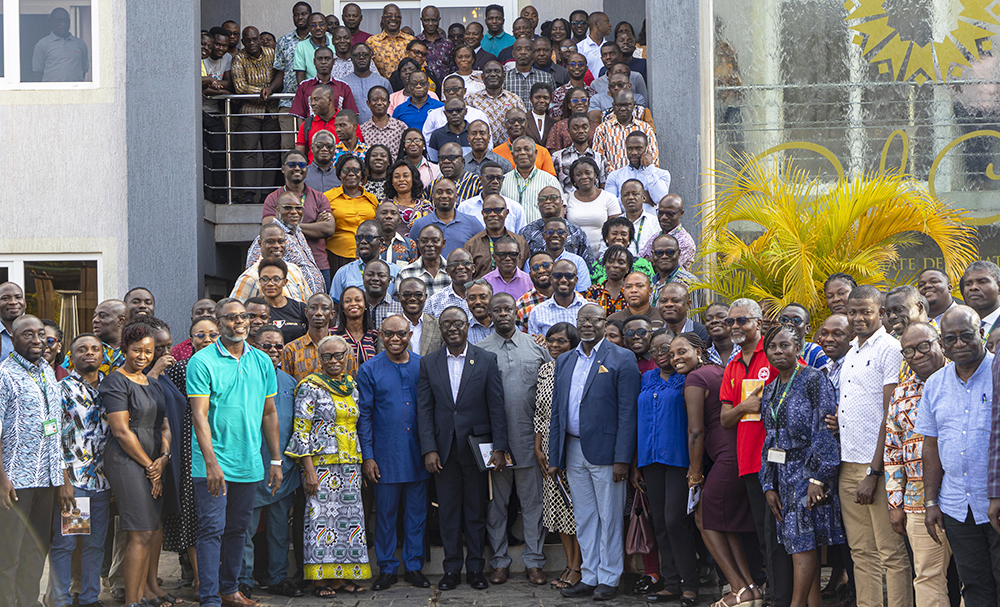The College of Health Sciences at the Kwame Nkrumah University Of Science And Technology (KNUST) has organised its 2024 Retreat And Advance Teaching And Learning (Senior Members Edition) from 21st to 24th October 2024 at Rock City Hotel, Nkwatia-Kwahu. The four-day retreat was held on the theme: ‘‘Problem-Based Learning (PBL) Versus Other Methodologies-21st Century Competencies.’’
In an opening ceremony, Professor Christian Agyare, Provost of the College of Health Sciences, highlighted how traditional approaches no longer fully meet the demands of a rapidly evolving healthcare landscape, particularly in the health field. He mentioned how health education must equip future practitioners with diverse skillsets such as critical thinking, problem-solving and collaborative skills to address complex health challenges. He further noted the shortcomings of traditional lecture-based learning, which tends to focus on passive knowledge acquisition. “Students listen, take notes, and memorise information, but this method often falls short in preparing them to face the practical, hands-on realities of patient care, hence the need for PBL,” he said.

Professor Agyare emphasised facilitators' crucial role in Problem-Based Learning (PBL), stating how it provides opportunities for deep engagement with students to guide them in developing essential skills and applying their knowledge in innovative ways. He added that this collaborative teaching method benefits not only the students but also revitalises the role of educators, making the learning process more dynamic and rewarding for all involved.
He indicated that shifting to PBL encourages critical thinking and problem-solving skills which are essential for diagnosing and treating patients while also promoting self-directed learning. Professor Agyare stressed the importance of continuous education and the ability to independently seek out and apply new information. He further underscored how the PBL brings about collaboration and teamwork, “Healthcare is rarely a solo endeavour; it requires the cooperation of various specialists and professionals,” he said.

The Pro Vice-Chancellor, Professor David Asamoah in his remarks noted that the theme for the retreat was timely as it seeks to equip students and educators with skills that will enable their prospering in an ever-changing world. He highlighted the benefits of PBL, which places students at the centre of learning, encouraging them to apply theoretical knowledge to real-world medical cases in a collaborative environment. "PBL fosters teamwork, clinical reasoning, and communication skills that are crucial for delivering high-quality healthcare," Professor Asamoah said.‘‘

Giving the keynote address, Professor Sebastian Eliason, an Associate Professor of Population, Reproductive and Child Health, University of Cape Coast, called for reforms in medical education to meet the demands of the modern healthcare environment. He noted that while traditional medical education has its merits, it often falls short in preparing students for the complexities of clinical practice. Professor Eliason advocated for PBL to cultivate adaptable, empathetic, and critically thinking healthcare professionals capable of navigating real-world challenges.
Professor Eliason outlined the key advantages of PBL, such as its ability to foster critical thinking, collaboration, and self-directed learning. He emphasised that PBL allows students to integrate knowledge across disciplines, breaking down the silos of traditional education. To implement PBL effectively, he called for thoughtful curriculum design, educator training, and a shift in assessment methods to focus on problem-solving abilities and teamwork in clinical scenarios.
Chairman of the planning committee, Professor Joslin Alexei Dogbe, remarked that the four-day retreat provides a platform for senior members to engage in discussions on the future of medical education, with a shared commitment to implementing PBL and preparing students for the complexities of modern healthcare.
















